Is THIS the strategy behind the Virgin Atlantic changes?
Links on Head for Points may support the site by paying a commission. See here for all partner links.
I’m in Poland at the moment, so I’m catching up with the Virgin Atlantic Flying Club changes at roughly the same time as the rest of you. Rhys has been doing the heavy lifting in the office on your behalf.
If you look at his interview with Anthony Woodman, Virgin Atlantic’s VP of Loyalty, yesterday, you’ll notice one line that Rhys picked up on.
Anthony specifically said that he wants to “double the number of Virgin Points being redeemed on Virgin Atlantic”.
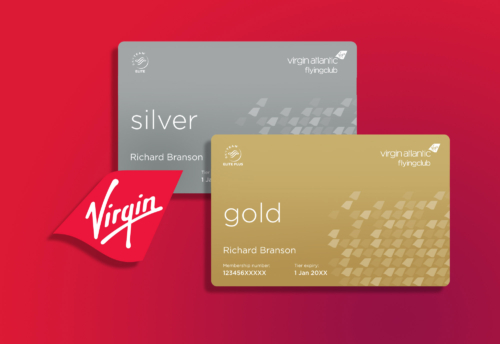
As Rhys noted, this statement doesn’t make much sense. It implies that only a small percentage of Virgin Points are being redeemed on Virgin Atlantic. This feels odd – the Virgin Flying Club base makes up the bulk of Virgin Red members and flight redemptions are far more expensive than other Virgin Red rewards.
However, there was potentially another clue when Anthony said that his model for the changes was Flying Blue, the Air France / KLM loyalty scheme.
Does Virgin Atlantic plan to copy Flying Blue and milk the US credit card market?
A couple of years ago, Flying Blue – under the management of Ben Lipsey, who I know fairly well – decided that the US credit card market represented a huge pile of untapped cash.
It wasn’t that simple to grab of course. Flying Blue has credit cards in the US but they are never going to make a dent in the overall market.
What Flying Blue decided to do was go for the points conversion market.
- First, it signed up virtually every convertible points currency in the US. There are very few credit card points which cannot now be converted into Flying Blue.
- Second, it started a series of aggressive conversion bonuses to get itself noticed. Last year it ran a 150% transfer bonus with one card issuer. Every transfer generates a cheque from Chase, Wells Fargo, Bilt, Citibank, American Express, Capital One etc.
- Third, it partnered with award planning apps. These are websites (PointsYeah, Point.me etc) which show you the points price for a selected flight across multiple points programmes. Flying Blue ensured it was well positioned in these apps.
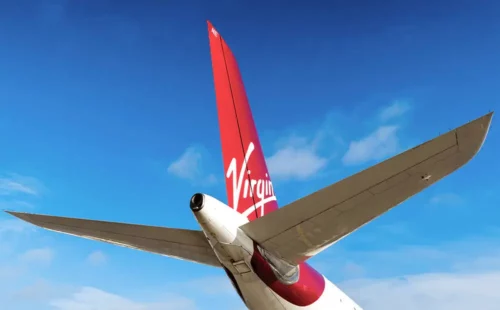
For many frequent flyer schemes there would be a risk from this strategy:
- First, you are attracting such a high level of points conversions that you would take reward seats from your own frequent flyers
- Second, this strategy only works if you have a reward seat to offer in the first place. If you can’t offer someone a flight, they’re not transferring their points to you – unless you are the cheapest route for booking a partner airline which does have a seat.
Because Flying Blue had ALREADY moved to ‘we’ll sell you any seat on any flight for points, even if it costs 1 million points (which it sometimes does)’, the two factors above weren’t an issue.
Whatever routing someone searches via a reward flight finding app, Flying Blue will ALWAYS show as available if it could be flown on Air France or KLM aircraft. The points price may be high but the flight will be there.
For someone who just picked up 100,000 miles for opening a new Chase / Bilt / Citi / American Express / Capital One credit card, and who is being offered a 30% to 50% conversion bonus on top, a high points price isn”t going to put them off. After all, it was just one credit card sign up bonus.
(I asked Ben if people do actually book awards for 1 million Flying Blue points. He told me that, to his surprise, they do.)
Here is a quote from a podcast that Ben did last year (thanks to Gary Leff for this):
So of course, Amex rewards is the biggest but there’s also Chase, there’s Citi, you know, Capital One. We, of course, have a partnership with Bilt [Wells Fargo]. So the logic is roughly the same. You can transfer it to Flying Blue and then you can redeem. And, you know, a lot of the challenge that national to the US and international program has is we’re not always top of mind. So we also look at some of our partners. Like Point.me, for example, which acts as a kind of Google Flights or an OTA for redemption. That allows us to very easily compare the availability and pricing of reward tickets. And then it tells them kind of where to transfer my points to and how do I book.
And for us, you know, when we can, they’ll remain profitable and offer attractive reward inventory and options to our customers. In the US in particular, for us it’s a really, you know, good source of value that I think that we offer and one which will actually lead us to, you know, having over 50 percent of our award tickets being issued point of sale US. As of about mid next year [mid 2024], which is a really interesting statistic, I think, for a foreign, foreign loyalty program.
Yes, over 50% of Air France KLM’s award tickets are now booked by members who live in the United States – and it’s virtually all funded by credit card points transfers into Flying Blue.
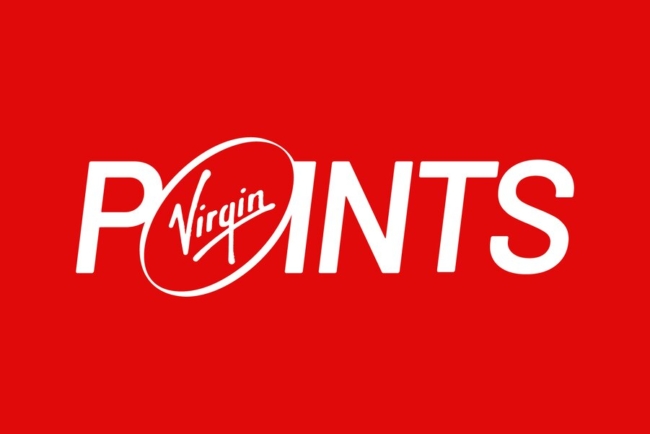
Is this how Virgin Atlantic will double the number of Virgin Points redeemed for flights?
If Virgin Atlantic DOES want to double the number of Virgin Points used for flight redemptions, it is going to have to do it via credit card points conversions.
This could be the plan:
- start aggressively courting the credit card conversion market in the US via American Express / Wells Fargo / Bilt / Capital One / Citibank / Chase with larger transfer bonuses than we’ve seen historically
- open up all seats for points so Virgin Atlantic can always offer a redemption option – even if the points price is high, people will still book because they are using ‘free’ credit card bonuses
If it adds 1% to Virgin Atlantic’s overall load factor it would be seen as a success – even if existing UK members without access to US-style credit card bonuses struggle to redeem due to high points pricing.
The Flying Blue strategy is not a secret. I have seen them present it at loyalty conferences more than once and via the podcast I mentioned above. They have always been keen to show what a crazy amount of money it brings in from the US credit card issuers. Perhaps Virgin Atlantic wants a cut too?
PS. If you are not a regular Head for Points visitor, why not sign up for our FREE weekly or daily newsletters? They are full of the latest Avios, airline, hotel and credit card points news and will help you travel better. To join our 70,000 free subscribers, click the button below or visit this page of the site to find out more. Thank you.
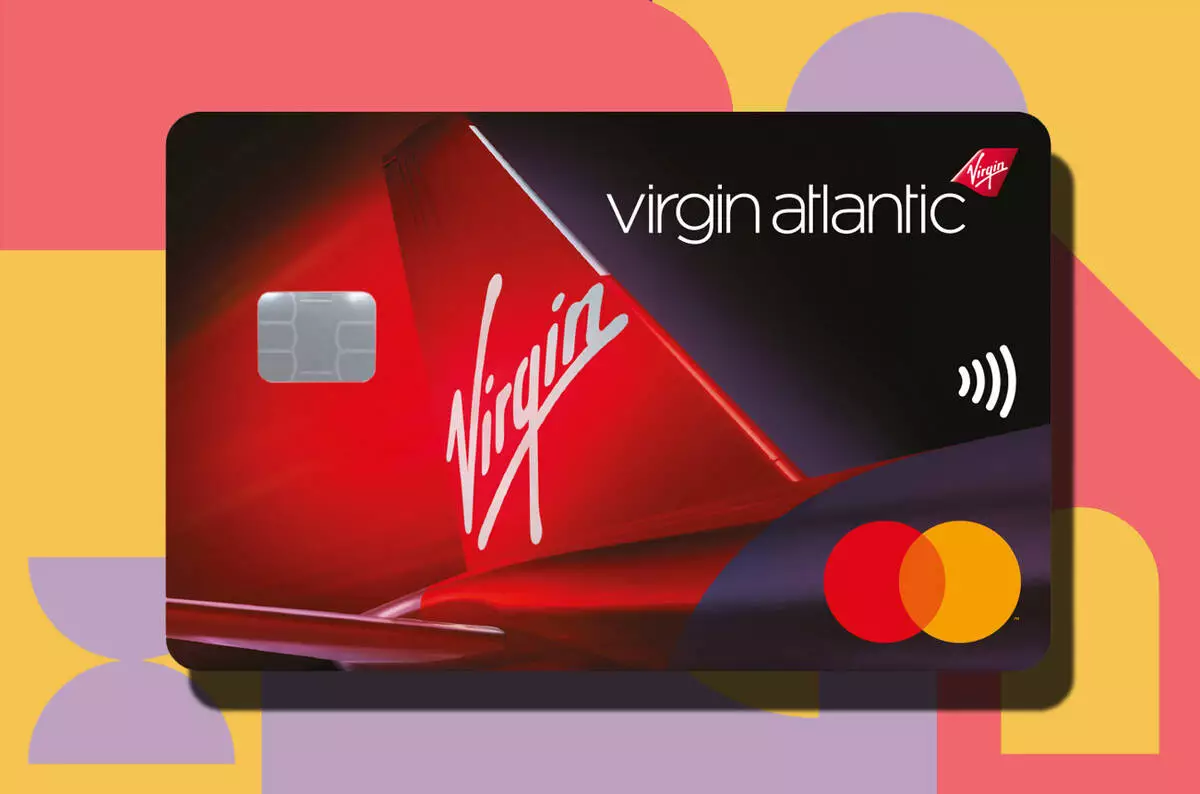
How to earn Virgin Points from UK credit cards (July 2025)
As a reminder, there are various ways of earning Virgin Points from UK credit cards. Many cards also have generous sign-up bonuses.
You can choose from two official Virgin Atlantic credit cards (apply here, the Reward+ card has a bonus of 18,000 Virgin Points and the free card has a bonus of 3,000 Virgin Points):
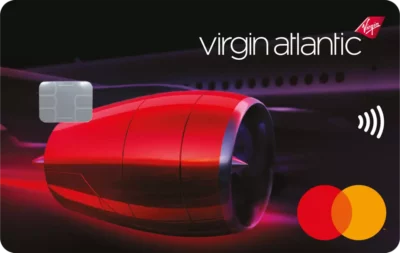
Virgin Atlantic Reward+ Mastercard
18,000 bonus points and 1.5 points for every £1 you spend Read our full review
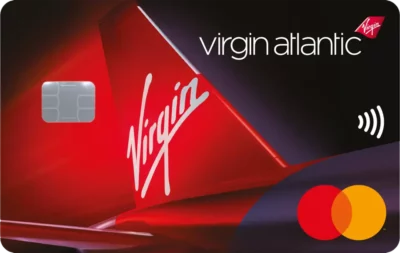
Virgin Atlantic Reward Mastercard
3,000 bonus points, no fee and 1 point for every £1 you spend Read our full review
You can also earn Virgin Points from various American Express cards – and these have sign-up bonuses too.
The American Express Preferred Rewards Gold Credit Card is FREE for a year and comes with 20,000 Membership Rewards points, which convert into 20,000 Virgin Points.

American Express Preferred Rewards Gold Credit Card
Your best beginner’s card – 20,000 points, FREE for a year & four airport lounge passes Read our full review
The Platinum Card from American Express comes with 50,000 Membership Rewards points, which convert into 50,000 Virgin Points.

The Platinum Card from American Express
50,000 bonus points and great travel benefits – for a large fee Read our full review
Small business owners should consider the two American Express Business cards. Points convert at 1:1 into Virgin Points.

The American Express Business Platinum Card
50,000 points when you sign-up and an annual £200 Amex Travel credit Read our full review

The American Express Business Gold Card
20,000 points sign-up bonus and FREE for a year Read our full review
Click here to read our detailed summary of all UK credit cards which earn Virgin Points.

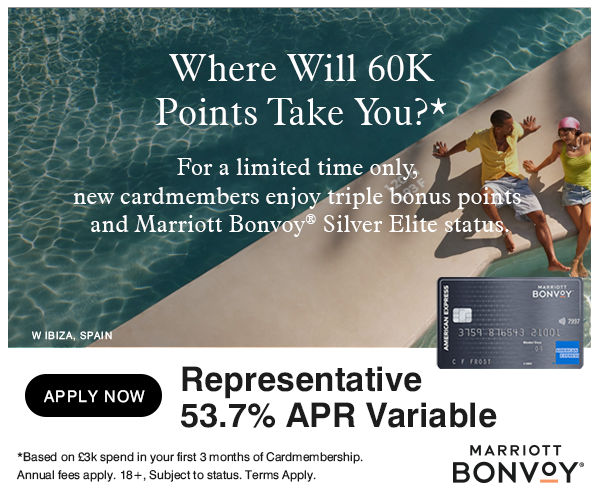

 Rhys
Rhys 





Comments (96)